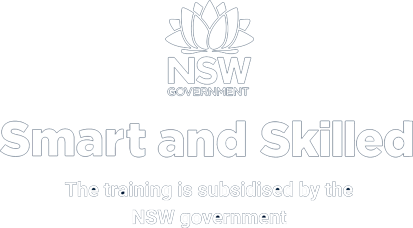Cabinet making is a craft that requires both precision and creativity. This trade is crucial not just in Australia but globally, as it enhances both local and international markets. Learning to become a cabinet maker means mastering the use of various materials and tools to create everything from stylish furniture to essential kitchen cabinets.
This article will explore the essential tools and training needed to excel in this field, providing a practical guide for those looking to turn their passion for woodworking into a viable career.
How to become a cabinet maker
To start a career in cabinet making in Australia, prospective cabinet makers must typically complete MSF30322 Certificate III in Cabinet Making and Timber Technology. This qualification, which can be pursued at various institutions across the country, lays the groundwork for mastering the trade.
The training combines theoretical lessons with practical, hands-on experience, ensuring learners develop a comprehensive skill set that includes designing, measuring, cutting, and assembling high-quality furniture and fixtures.
Additionally, entering competitions can provide invaluable experience and exposure. These competitions are not only a platform to refine skills but also a means to gain recognition and potentially advance in the industry.
The Australian Cabinet and Furniture Association (ACFA) offers further support and training for those in the industry, ensuring that cabinet makers have access to the latest resources and standards in furniture manufacturing and craftsmanship.
Qualification pathways to cabinet making
For those aspiring to master the craft of cabinet making, many institutions offer courses that can help you launch a career in the industry. Here are some of the reasons why completing MSF30322 Certificate III in Cabinet Making and Timber Technology is important:
- Core skills developed. Students will gain competencies in various areas, such as using tools, measuring, drawing (including CAD), interpreting work documentation, preparing cutting lists, and effective communication. Specialised skills include wood machining, cabinet and furniture making, and kitchen and bathroom construction.
- Career opportunities. Graduates are prepared for roles as professional cabinet makers, with skills applicable in kitchen and bathroom installations, furniture making, and even marine cabinetry.
- Licencing and certification. Some specialisations, like kitchen and bathroom installation, require specific licensing in Australia, which this course addresses.
MSF30322 Certificate III in Cabinet Making and Timber Technology is also aligned with the latest industry standards, ensuring that all training is relevant and can lead to immediate employment opportunities. This qualification not only opens doors to traditional cabinet making roles but also to emerging opportunities in related industries requiring precision woodworking skills.
With the growing demand for custom furniture and quality woodwork, skills acquired in this course are increasingly valuable, providing a solid foundation for a flourishing career in cabinet making.
The apprenticeship route
Apprenticeships are a core avenue for aspiring cabinet makers, combining theoretical learning with practical experience. Typically lasting three to four years, these programmes are structured to provide comprehensive skills in both traditional woodworking and modern cabinet-making technologies.
Apprentices gain hands-on experience under the guidance of skilled professionals, enabling them to master the craft of creating and installing cabinetry and furniture.
This training is essential for understanding industry standards, safety protocols, and the detailed craftsmanship required in cabinet making. Apprentices learn to handle diverse materials and tools, execute design plans, and meet client specifications with precision.
The timeline for becoming a cabinet maker
The journey to becoming a qualified cabinet maker typically spans 12 to 24 months, contingent upon the chosen educational pathway and the individual’s prior experience. However, if you decide to learn part-time while working elsewhere, the timeline could extend to three to four years.
If you already have industry experience, look for an RPL certification programme.
Here, your existing knowledge and skills will be assessed against recognised qualifications. Depending on your level of experience and knowledge, the RPL certification can be completed in as little as two to eight weeks. You may be required to take additional classes if there are any areas where you need additional training.
Apprenticeships, a common route in this trade, can extend up to four years, integrating on-the-job training with classroom instruction. This comprehensive training ensures that apprentices not only gain practical skills but also understand theoretical aspects necessary for mastery in cabinet making.
Remember, the journey to becoming a cabinet maker is not just about completing a course. Mastery comes with hands-on practice. Even after formal training, expect to spend considerable time honing your skills before you reach a professional competency level.
The importance of accreditation in cabinet making
Accreditation in cabinet making is crucial for ensuring that professionals meet industry standards and are recognised for their skills and knowledge. The process of accreditation not only validates the competency of cabinet makers but also enhances their reputation in the industry, making them more attractive to potential employers and clients.
Associations like the Cabinet Makers Association of Western Australia (CMAWA) provide members with resources, industry updates, and opportunities for professional growth. This underscores the importance of being part of an accredited body.
Achieving recognition as a cabinet maker
Finishing MSF30322 Certificate III in Cabinet Making and Timber Technology is the first step to gaining recognition as a qualified cabinet maker in Australia. This formal education is often supplemented with hands-on apprenticeship experiences that provide real-world skills and expertise.
Achieving accreditation can involve various steps, including completing educational and practical training requirements, and often requires passing specific assessments that demonstrate the cabinet maker’s abilities.
Professional associations play a significant role in this process by offering certification that is recognised across the industry, which not only aids in professional development but also helps in maintaining the high standards of craftsmanship required in the field.
Additionally, these organisations offer networking opportunities, access to workshops, and further education that contribute to a cabinet maker’s career progression.
The risks of lacking accreditation in cabinet making
Without an accredited certification, you risk undervaluing your craftsmanship and potential. It’s the same reason why universities need accreditation: to ensure that their course offerings and teaching methodologies comply with nationally accepted standards.
In the cabinet making profession, accreditation is a guarantee that the woodworker has been trained to perform their craft following set guidelines and best practices.
Frequently Asked Questions (FAQ)
You can check this article on ‘How much does a Cabinet Maker make’.
How can I incorporate smart technology into traditional cabinet making?
Smart technology integration is becoming increasingly important in kitchen design. As a cabinet maker, you can enhance functionality by incorporating features such as touch-sensitive surfaces, motion-activated lighting, and voice-command operations.
These technologies not only offer convenience but also appeal to the modern homeowner, making your cabinetry designs more marketable and forward-thinking.
What are the latest colour trends in kitchen cabinetry for new cabinet makers?
Emerging colour trends in kitchen cabinetry show a shift towards vibrant and unique hues. This includes the use of earthy tones like terracotta and serene blues, as well as the bold choice of black kitchens that provide a striking contrast and deep texture. This trend offers an opportunity for cabinet makers to incorporate personal style and modern aesthetics into their designs.
What materials are gaining popularity in sustainable cabinet making?
Sustainability is a key focus in the current trends of cabinet making, with materials like bamboo and recycled wood becoming popular due to their environmental benefits. Using these materials can help you cater to the growing market of eco-conscious consumers, and these choices are often valued for their durability and aesthetic appeal as well.
Crafting your future in cabinet making
Cabinet making combines creativity with precision, offering a fulfilling career path for those interested in working with their hands and transforming raw materials into functional and beautiful items. This article has outlined the essential tools and educational paths to help you turn your woodworking passion into a professional craft.
As you pursue your passion, it’s crucial to stay updated with the latest trends, embrace new technologies, and pursue continuous learning. Whether through additional certifications like CPC30620 Certificate III in Painting and Decorating and CPC30220 Certificate III in Carpentry, apprenticeships, or self-directed learning, the key to success lies in commitment and practice.
Start small, stay persistent, and always strive for mastery in every piece you create.
Key Points to Remember
- Starting a career in cabinet making. Beginning a career in cabinet making in Australia often involves completing MSF30322 Certificate III in Cabinet Making and Timber Technology.
- Educational pathways. Various institutions provide courses tailored to aspiring cabinet makers, focusing on essential skills such as measuring, cutting, and assembling furniture, among other specialities.
- Apprenticeships. These are vital for gaining real-world experience, combining on-the-job training with classroom learning, typically spanning three to four years.
- Importance of accreditation. Accreditation ensures that cabinet makers meet professional standards and gain recognition in the industry, enhancing their employment prospects.
- Achieving professional recognition. Gaining formal qualifications and completing apprenticeships are crucial steps in being recognised as a qualified cabinet maker.
Everthought is an educational establishment specialising in the construction industry, and our top-notch training facilities, seasoned tutors, and career-oriented programmes equip you with the necessary skills and knowledge to succeed in your chosen profession. Our dedication lies in providing top-tier education coupled with practical exposure to guarantee a flourishing career.





